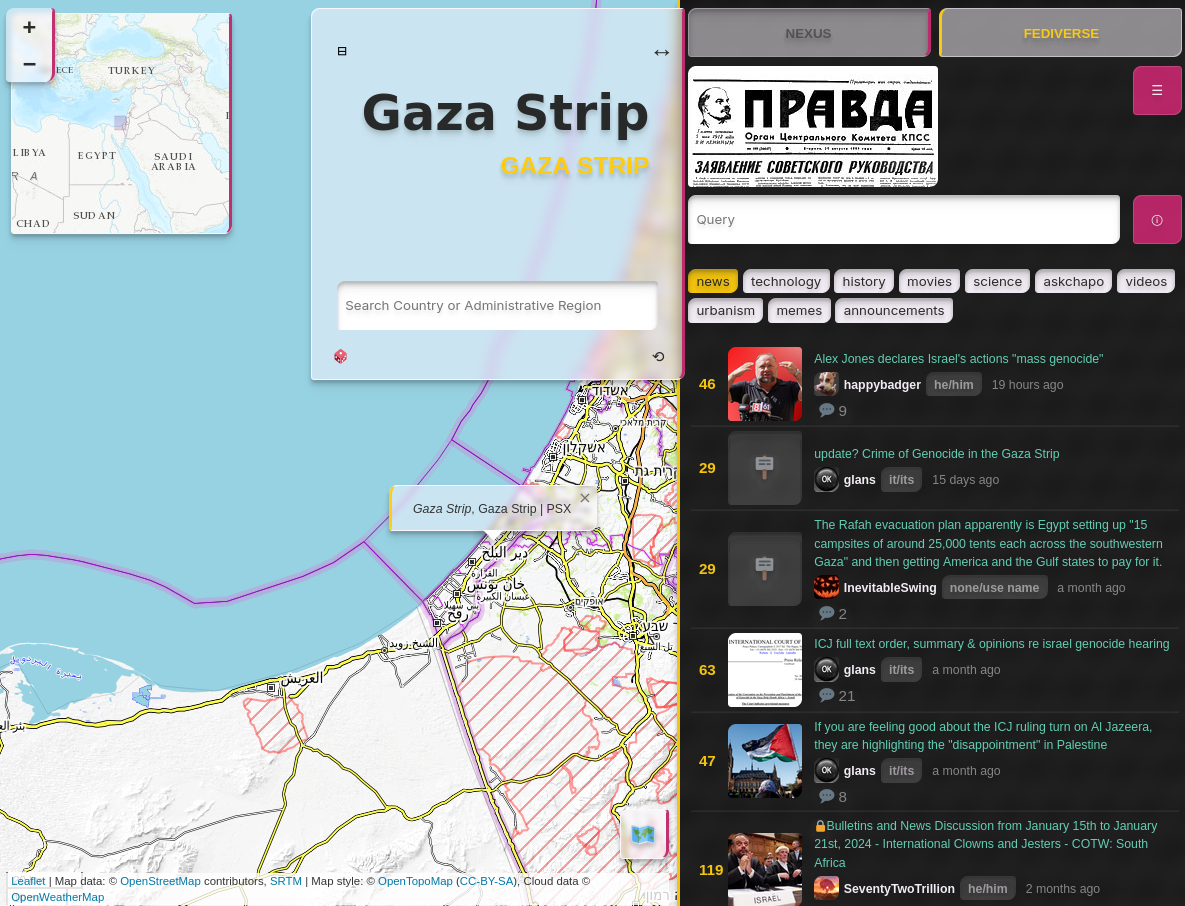news
Welcome to c/news! Please read the Hexbear Code of Conduct and remember... we're all comrades here.
Rules:
-- PLEASE KEEP POST TITLES INFORMATIVE --
-- Overly editorialized titles, particularly if they link to opinion pieces, may get your post removed. --
-- All posts must include a link to their source. Screenshots are fine IF you include the link in the post body. --
-- If you are citing a twitter post as news please include not just the twitter.com in your links but also nitter.net (or another Nitter instance). There is also a Firefox extension that can redirect Twitter links to a Nitter instance: https://addons.mozilla.org/en-US/firefox/addon/libredirect/ or archive them as you would any other reactionary source using e.g. https://archive.today/ . Twitter screenshots still need to be sourced or they will be removed --
-- Mass tagging comm moderators across multiple posts like a broken markov chain bot will result in a comm ban--
-- Repeated consecutive posting of reactionary sources, fake news, misleading / outdated news, false alarms over ghoul deaths, and/or shitposts will result in a comm ban.--
-- Neglecting to use content warnings or NSFW when dealing with disturbing content will be removed until in compliance. Users who are consecutively reported due to failing to use content warnings or NSFW tags when commenting on or posting disturbing content will result in the user being banned. --
-- Using April 1st as an excuse to post fake headlines, like the resurrection of Kissinger while he is still fortunately dead, will result in the poster being thrown in the gamer gulag and be sentenced to play and beat trashy mobile games like 'Raid: Shadow Legends' in order to be rehabilitated back into general society. --










 incident a few days ago where LA sheriff deputies blew themselves up with a grenade they seized? Well
incident a few days ago where LA sheriff deputies blew themselves up with a grenade they seized? Well